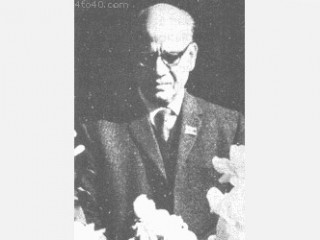
Benjamin Peary Pal biography
Date of birth : 1906-05-26
Date of death : -
Birthplace : Mukundpur, Punjab, India
Nationality : Hindi
Category : Science and Technology
Last modified : 2010-06-22
Credited as : Scientist and discoverer, developed NP (New Pusa) 700 and NP 800 series,
6 votes so far
Pal was born at Mukundpur, Punjab, on May 26, 1906. he spent his early life in Burma, where during his school and college days he won many prizes and scholarships. In 1929 he went to Cambridge to do research on wheat and he returned to Burma with a Ph.D. five years later. In 1933 he got a research job with what is now known as the Indian Agricultural Research Institute in New Delhi.
In pre-independence days not much agricultural research was in progress in the country. Disease used to destroy a major portion of the crops. Wheat was particularly susceptible to rust, a kind of fungal disease which damages a plant just as rust corrodes iron. Although some varieties of wheat that could give higher yields had been found, there was none that could combat rust. Pal decided to develop new varieties of wheat which could do so.
He developed NP (New Pusa) 700 and NP 800 series, which should combat a particular type of rust. But the real breakthrough came only in 1954 when he developed the NP 809 after 18 years of painstaking research. This variety of wheat can combat all three types of rust and it was a big step forward in increasing wheat production. He was applauded the world over for this remarkable achievement.
In 1965 Pal became Director General of the newly founded Indian Council of Agricultural Research in New Delhi. Because of his efforts the Council is today playing a key role in the country’s agricultural progress. The origin of the Green Revolution can be traced to his researches and plans. For his significant contributions to science, he was awarded the Rafi Ahmed Kidwai Prize, the Birbal Sahni Medal and the S. Ramnujan Medal. He also won other State honours and in 1972 was elected Fellow of the Royal Society.
Pal has also done significant research on roses and developed more than forty varieties of them. He has written several books on roses, the most popular being The Rose in India.
















